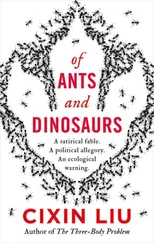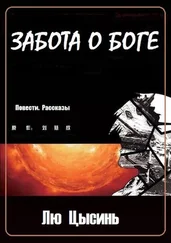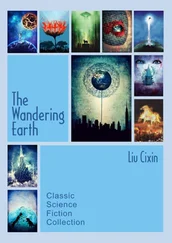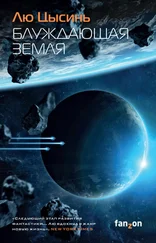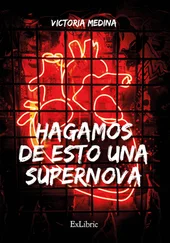From
A Chronicle of the Great Migration, China Edition, vol. 6. Sino-American Territory Exchange Commission, New New York, SE 7.
Now the three leaders had reached the end of the exhibit, the prehistoric gallery of the origins of Chinese civilization. In the previous galleries they had felt in awe of the finely crafted objects from earlier ages, but also perplexed, since it seemed as if an invisible wall kept them separated. The estrangement had been most acute when they had entered the premodern gallery, and it had almost sapped their courage to go on. If even the not-so-distant Qing Dynasty was an entirely unknown world to them, had they any hope of understanding any earlier age?
But contrary to their expectations, the farther back in civilization they went, the less of a separation they felt, and now that they had reached its remote origins, they had the sudden feeling of being in a familiar, inviting world. As if, after a long voyage through strange, incomprehensible lands, all of them peopled solely by incomprehensible adults speaking incomprehensible languages and living a different kind of life, almost as if they came from a different planet, now they had reached the end of the earth, and had found a children’s world just like their own.
Those splendid, exquisite premodern artifacts did not belong to children; the humanity that created them had already grown up. Humanity’s childhood may have been more remote, but it spoke to children all the same. The three children stared intently at the Yangshao culture [8] A Neolithic culture that flourished along the Yellow River 5000–3000 BCE, predominantly in what is now Henan, Shanxi, and Shaanxi.
artifact: a clay pot. The crude object reminded them of a rainstorm from their young childhood, and of forming a similar object out of mud under a rainbow after the storm had passed. The age before them was the age of Pangu separating heaven and earth, of Nüwa mending heaven, of Jingwei filling up the sea, of Kuafu chasing the sun. Humanity grew up, but its courage slackened, and no more did it create such earth-shattering myths.
Huahua slid back the glass of the display case and carefully lifted the pot out. It felt warm, and almost seemed to vibrate in his hands. It was a being of extraordinary energy. He bent an ear to the opening. “I hear something!” he exclaimed. Xiaomeng pressed her ear to it and listened intently. “It’s the sound of wind!” The wind blowing over the primeval wilderness. Huahua lifted the jar up to the Rose Nebula, and the clay had a faint red luster in the blue light. He stared at the fish design, and that combination of the simplest of lines wriggled slightly, and a sudden spirit came into the black circle representing the eye. Shadows flitted across the pot’s rough surface; they were too vague to make out, but they had the feeling of naked figures wrestling against something far larger than themselves.
The ancient sun and moon dwelt within the pot and cast gold and silver light over the figures. Its patterns, fish and beasts, were like pairs of eyes looking out over the long millennia, and that first ancestor’s gaze met their own and passed to them a rugged energy that made them want to cry out, to weep, to laugh, to tear off their clothes and race through the howling wind in the wilderness. At long last they could feel their ancestors’ blood flowing in their veins.
The three of them crossed the age-old palace beneath the light of the Rose Nebula holding the ancient pot, the oldest artifact in the city, left to them from the infancy of Chinese civilization. Walking slowly and carefully, they held it as gingerly as if it were their own eyes, or life itself. When they reached the Golden River Bridge, the last gate of the palace closed behind them with a clang. They knew that no matter where they went, their lives would be forever connected to that clay pot they held. It was their origin and their destination, and the source of their strength.
A two-day gale had finally died down, but the waves were still high and the night sky remained overcast. The only things visible on the water in the dead of night were endless churning whitecaps.
The first of the migration fleets had left port sixty days ago, and this was the first storm it had encountered. The wind had been strongest on the previous night, and two of the smallest-displacement transport ships, sailing at the rear, had been swallowed up by the gigantic waves. Another twenty-thousand-ton freighter had gone to their aid, but when the captain gave an ill-considered order to turn, putting the ship parallel to the waves, it was capsized by a few huge hits. When two helicopters that took off from another military vessel disappeared without a trace into the ocean, fleet command had to abandon the rescue effort, consigning more than twelve thousand children to the inky depths of the Pacific.
The remaining thirty-eight ships continued their arduous passage through the wind and waves. But the children were already used to the harshness of the voyage. First the wretched cabin conditions and the torment of seasickness, then food shortages, with daily rations only enough for one full meal, no vegetables. Even vitamin tablets were limited. Half the children came down with night blindness, and a growing number were septic, but they maintained discipline under adverse conditions. Organization was sustained in small, medium, and large groups, and leaders at all levels remained in their posts, carrying out their duty with fearless dedication. Once they reached the Americas, sustaining that discipline and organization would be for the Chinese children a trial far more difficult than any storm or hunger.
Two days ago they had crossed paths with the American migration fleet. The two fleets followed their own path in silence, neither acknowledging the other’s presence. The American children did not appear to be much better off.
At last the waves receded. They had diverted from their route for two days in order to follow the safest line through the storm, and now the entire fleet was attempting an arduous change of heading. Waves thundered off the bow and port side, and the side-to-side rocking intensified.
The dark clouds overhead had scattered, and the light of the Rose Nebula hit the waves and scattered into a thousand directions, turning the Pacific into a marvelous ocean of blue fire. The children ran out onto the deck, their footsteps shaky from seasickness and hunger, and flocked to the sides of the ship as if sleepwalking. But there was no stopping the cheers when they saw the majestic sight before them.
It was the last day of the second year of the Supernova Era.
Midnight.
A few destroyers fired ship guns into the air, and strings of flares and fireworks rose from other ships. The explosions and the waves and the children’s excited shouts blended into one, resounding through the air and across the sea.
The first rays of dawn peeked out from the eastern horizon and mingled with the Rose Nebula into the most magnificent riot of color in the entire universe.
Now it was January 1, the third year of the Supernova Era.
Finished at last! Time to take a deep breath, like a diver breaking the surface. For the half a year I spent underwater, this book has occupied my entire life. Now I can truly say that I am finished “writing,” since the power’s out again—the government says it’s another problem with the solar batteries—and I’ve had to take up that ancient pen. Yesterday it was clogged from the cold and I couldn’t write; today it isn’t, and I’m sitting here sweating in the heat and dripping onto the pages. The climate varies day to day, sometimes hour to hour, and without the AC it’s intolerable.
Читать дальше
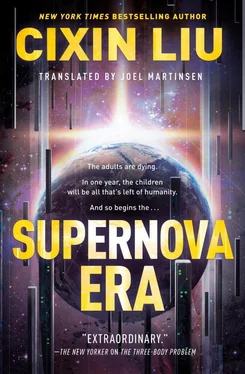
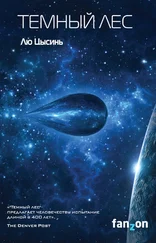
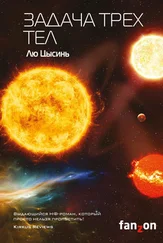
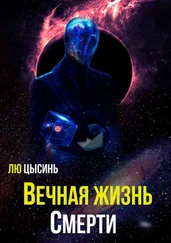
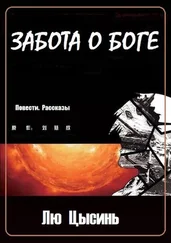
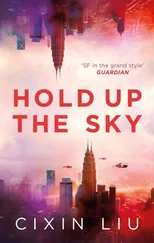
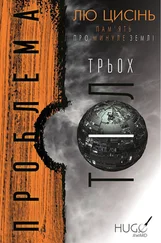
![Лю Цысинь - Эпоха сверхновой [litres]](/books/393110/lyu-cysin-epoha-sverhnovoj-litres-thumb.webp)
